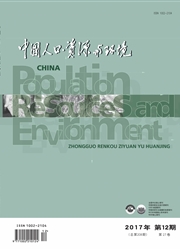

 中文摘要:
中文摘要:
基于博弈论和委托代理理论,研究了非对称信息条件下两级供应链如何制定产品质量控制策略问题。构建了制造商和销售商的期望收益函数模型。制造商存在单边道德风险问题(降低其产品质量水平),此时销售商将支付“信息租金”以减少道德风险。运用最优化原理,求解了制造商的最优价格折扣、产品质量预防水平与销售商的最优外部损失成本分摊比例、质量检验水平。并进行了算例分析。结果表明:随着制造商产品质量预防水平的提高,制造商的质量预防成本将显著减少;随着销售商产品质量检验水平的增加,制造商所分摊的外部损失成本将减少,外部损失成本的分摊比例呈下降趋势,制造商产品质量缺陷概率将降低.制造商的期望收益也将增加。而销售商为激励制造商提高产品质量水平。将支付“信息租金”的成本,其期望收益将减少。此时整个供应链的联合期望收益呈“倒U”型.求解了期望收益的最大值.证明所提出的产品质量控制策略是有效的。
 英文摘要:
英文摘要:
Based on game theory and principal-agent theory, this paper studies how to make products quality control strategy in supply chain under the condition of asymmetric information. We set up the manufacturer and retailer' s expected profits function model. ~Ilae manufacturer has the moral hazard problem of reducing product quality level, and the retailer will be able to compensate for the manufacturer by the form of information rents in order to reduce the moral hazard. We use the optimization theory to solve the manufacturer ' s optimal price rebates, the products quality prevention level and retailer' s optimal apportionment ratio of external failure cost, the probability of quality inspection, and conduct a numerical analysis. The results show that: With the improvement of the manufacturer's products quality prevention level, the quality prevention cost will be reducing significantly. With the improvement of the retailer' s products quality inspection level, the manufacturer' s the external failure cost will be reduced, the apportionment ratio of external failure cost is declining, the probability of products quality defects will be reduced, and the manufacturer' s expected profits will also increase. The retailer will pay the information rents for the manufacturer to encourage and improve the products quality, whose expected profits will be reduced. The supply chain' s joint expected revenues are inverted U-shaped. We solve the maximum expected profits and demonstrate that the quality control strategies are effective.
 同期刊论文项目
同期刊论文项目
 同项目期刊论文
同项目期刊论文
 期刊信息
期刊信息
